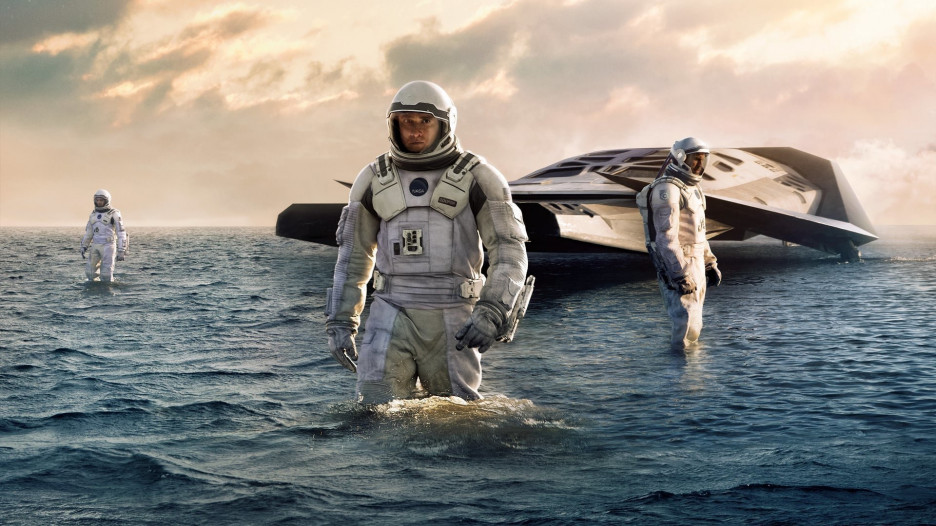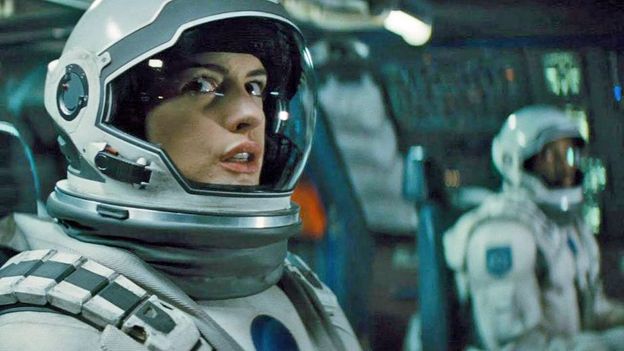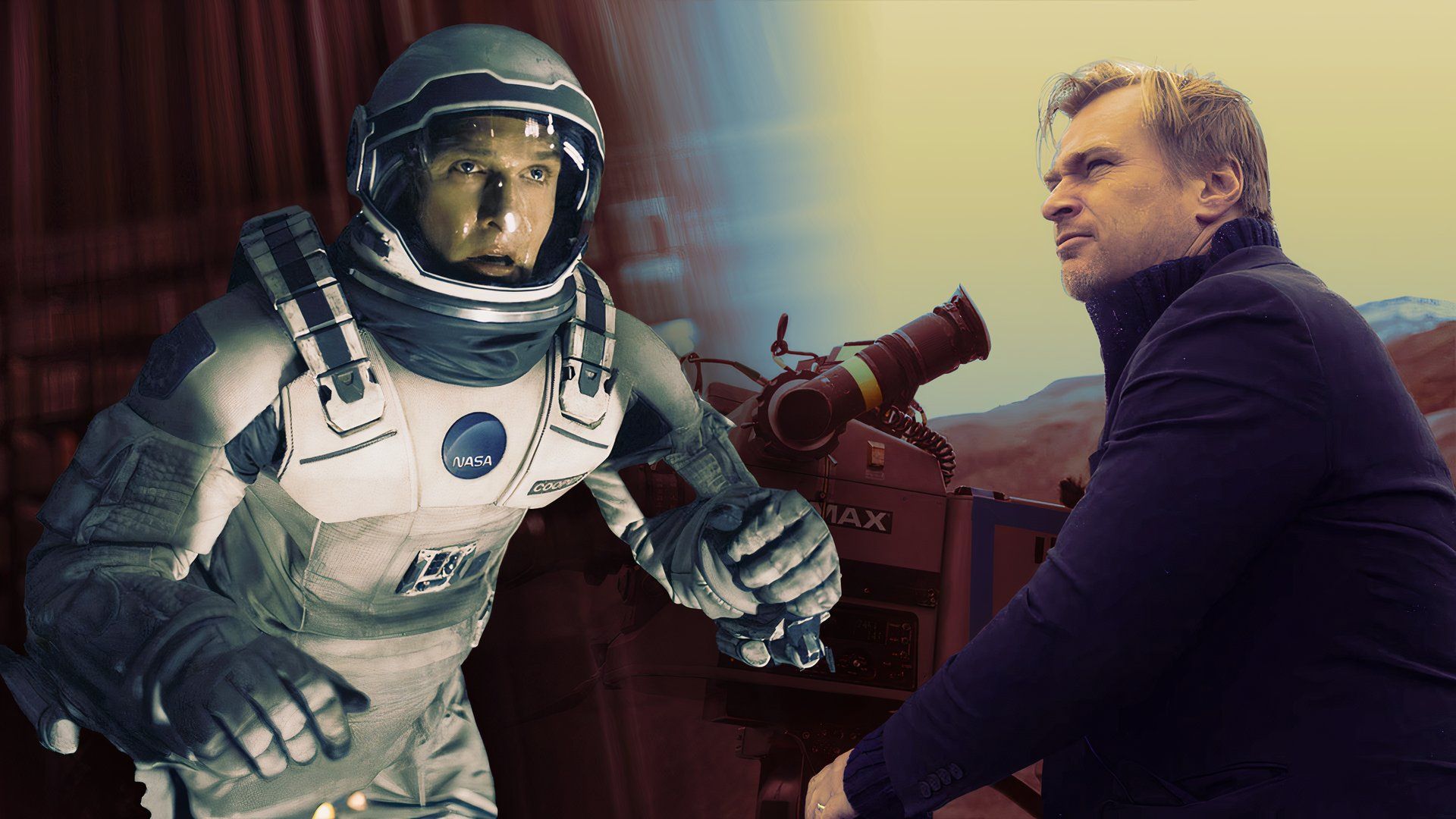Interstellar (2014)

Interstellar (2014), directed by Christopher Nolan, is a visually stunning and intellectually ambitious science fiction epic that explores themes of space exploration, time, love, and humanity’s survival. With an all-star cast led by Matthew McConaughey, Anne Hathaway, and Jessica Chastain, the film delves into both scientific and emotional realms, making it a modern classic in the genre.
Plot Summary:
The story is set in a dystopian future where Earth is ravaged by climate change, and humanity faces extinction due to widespread crop failures and dust storms. Former NASA pilot turned farmer Joseph Cooper (Matthew McConaughey) is recruited by a secret NASA mission to find a new habitable planet for humanity.
Cooper, along with a team of scientists, including Dr. Amelia Brand (Anne Hathaway), embarks on a journey through a wormhole near Saturn, which has been placed there by unknown beings. This wormhole leads to distant galaxies where three potentially habitable planets, previously scouted by other astronauts, may offer hope for mankind’s survival.
As they explore these worlds, the team must contend with the relativity of time, black holes, and other space-time phenomena. Meanwhile, back on Earth, Cooper’s daughter Murphy (played by Mackenzie Foy as a child and Jessica Chastain as an adult) grows up to become a brilliant scientist, trying to solve the equations that could allow humans to escape Earth. The bond between Cooper and Murphy, and their shared love, is at the heart of the film as Cooper sacrifices everything in a race against time to save humanity.
Key Themes:
- Love as a Transcendent Force: While the film is deeply rooted in scientific concepts like relativity and black holes, it also places a strong emphasis on human emotions, particularly love. Dr. Brand’s belief that love is a force that transcends time and space is a central theme, and the bond between Cooper and his daughter Murphy anchors the emotional core of the film.
- Time and Relativity: One of the most striking aspects of Interstellar is its exploration of time dilation, a concept from Einstein’s theory of relativity. Time moves differently for the crew in space, especially near a black hole, where an hour on one planet could equate to decades passing on Earth. This creates a profound sense of urgency and loss as Cooper watches his children grow up in what feels like mere moments to him.
- Human Survival and Exploration: The film asks big questions about humanity’s future and its place in the universe. The necessity of finding a new home for humankind reflects real-world concerns about climate change and environmental collapse. The film also pays homage to the human spirit’s drive to explore and push the boundaries of what is possible.
- Sacrifice and Duty: Throughout the film, characters must make difficult choices and sacrifices for the greater good. Cooper’s decision to leave his family to save humanity, and the sacrifices made by the crew during their space mission, highlight the personal costs of such monumental endeavors.
Cast:
- Matthew McConaughey as Joseph Cooper: A former NASA pilot who becomes the leader of the space mission. His love for his daughter Murphy and his duty to humanity are his driving forces.
- Anne Hathaway as Dr. Amelia Brand: A NASA scientist who accompanies Cooper on the mission, she believes love has a power that transcends scientific understanding.
- Jessica Chastain as Murphy Cooper: Cooper’s daughter, who grows up to be a brilliant scientist. Her strained relationship with her father and her quest to solve humanity’s problems are key to the film’s emotional arc.
- Mackenzie Foy as young Murphy Cooper: The young version of Cooper’s daughter, whose emotional connection with her father is central to the film.
- Michael Caine as Professor John Brand: Amelia’s father and the head of the NASA mission, who is working on a plan to evacuate humanity from Earth.
- Matt Damon as Dr. Mann: A former astronaut sent to one of the planets through the wormhole, whose motivations become crucial to the mission’s fate.
Cinematic Highlights:
- Visual Effects and Realistic Depictions of Space: Interstellar is celebrated for its stunning visuals, especially its depiction of black holes, wormholes, and alien planets. The film’s portrayal of the black hole “Gargantua” is scientifically accurate and visually awe-inspiring. The use of practical effects, combined with groundbreaking CGI, gives the film an immersive and realistic feel.
- Hans Zimmer’s Score: The haunting and ethereal score by Hans Zimmer is a key element of the film’s emotional power. The use of organ music adds a sense of grandeur and otherworldliness to the space sequences, while the quieter moments underscore the human emotions at play.
- Scientific Accuracy: Nolan worked with theoretical physicist Kip Thorne to ensure the scientific concepts in Interstellar were as accurate as possible. The film’s depiction of wormholes, time dilation, and black holes are grounded in real physics, making it not just a thrilling adventure, but an intellectually stimulating one as well.
- Emotional Depth: While Interstellar is a grand, visually spectacular film, its emotional depth sets it apart. The relationship between Cooper and Murphy, and the emotional toll of time and separation, resonate with audiences on a personal level.
Key Moments:
- The Wormhole Journey: The moment when Cooper’s crew first enters the wormhole is a visually breathtaking sequence, representing the unknown and humanity’s leap into the future.
- The Water Planet: The first planet the crew visits is covered in shallow water and experiences extreme time dilation due to its proximity to the black hole. This results in one of the film’s most intense and heartbreaking sequences.
- Cooper’s Tesseract Scene: Toward the end of the film, Cooper finds himself inside a multi-dimensional space called a “tesseract,” where he can interact with different moments in time. This sequence connects the scientific and emotional themes, as Cooper attempts to communicate with his daughter across time.
Conclusion:
Interstellar is an ambitious and awe-inspiring film that pushes the boundaries of both visual storytelling and philosophical depth. Its blend of hard science fiction with deep emotional resonance makes it a standout in the genre. The film’s exploration of time, space, love, and sacrifice ensures it remains a thought-provoking and moving cinematic experience.
Christopher Nolan’s direction, combined with strong performances from Matthew McConaughey and Jessica Chastain, and Hans Zimmer’s unforgettable score, ensures that Interstellar will continue to be celebrated as a modern classic for years to come.
















